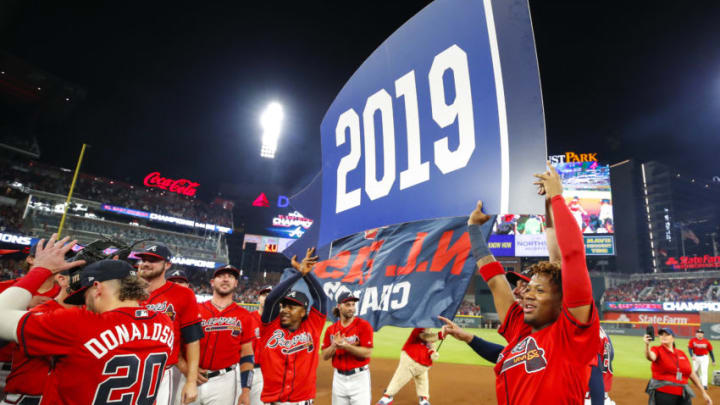Atlanta Braves PECOTA 2020 vs ZiPS: Just educated guesses
By Fred Owens

The Atlanta Braves won the NL East for the second consecutive year, but the 2020 PECOTA projections have them finishing third. Why?
Baseball Prospectus released their 2020 PECOTA calculations and Atlanta Braves Fans didn’t, or won’t, like what they show, perhaps because they don’t know what they’re looking at.
Nate Silver wrote the original version of PECOTA in 2002, and Baseball Prospectus took ownership in 2003. BP tweaked the system over the years and rewrote the current version from the ground up over the last two seasons. They define PECOTA like this.
"PECOTA, which stands for Player Empirical Comparison and Optimization Test Algorithm,is BP’s proprietary system that projects player and team performance."
The algorithm looks at a player’s past performance and projects the most probable production for the coming season. To quote the last previous BP link again:
"It looks at all of the numbers, and all the numbers that make up the numbers, to see which players are more likely to repeat their success and which ones benefited from good fortune."
Here’s what you need to remember($$):
"PECOTA and our simulations do not “pick” a team to “win” any particular number of games . . . they identify an estimated range of games a team might win and tells you the average of that fairly wide range . . . Any one of those outcomes is possible. However, some of them . . .are more likely than others."
The wins and losses projected are the most frequently occurring of the 100 simulations that ran.
PECOTA projects 83 Atlanta Braves wins
It actually says 82.6, but I rounded up, so sue me. The first release of PECOTA 2020 shows the Mets righting the ship after an up and down 2019, to finish first in the east, while the Atlanta Braves land six games back in third place.
| Sim W | Sim L | Div W % | Playoff % | WC Win % | |
| Mets | 87.8 | 74.2 | 47.8 | 75.3 | 63.1 |
| Nationals | 87.1 | 74.9 | 37.7 | 69 | 54.7 |
| Braves | 82.8 | 79.2 | 12.3 | 38.4 | 25.1 |
| Phillies | 76.8 | 85.2 | 1.9 | 8.9 | 5.1 |
| Marlins | 71.3 | 90.7 | 0.2 | 1.4 | 0.2 |
The comment at the bottom of the linked post ($) explains that playoff percentage is the chance a team makes the Wildcard; the Braves made it 38.4% of the time.
The column I labeled WC Win% for formatting purposes that call playoff % adj. It lists the number frequency with which a team won the Wildcard in their simulations; for the Atlanta Braves, that’s 25.1%.
Related Story. First Pecota reaction. light
A graph of all simulation results – as shown on BP – resembles a bell curve someone leaned on and bent. The majority of teams will finish the season within one standard deviation of either side of their midpoint, which covers 67 percent of the possible outcomes.
I can’t be precise because that data isn’t available, and according to the author’s comments, every team is slightly different.
However, the deviation looks like ± 6.7 games; round-up again, that’s a range of 76 to 90 wins for the Atlanta Braves. The reason boils down to lowered expectations and personnel changes.